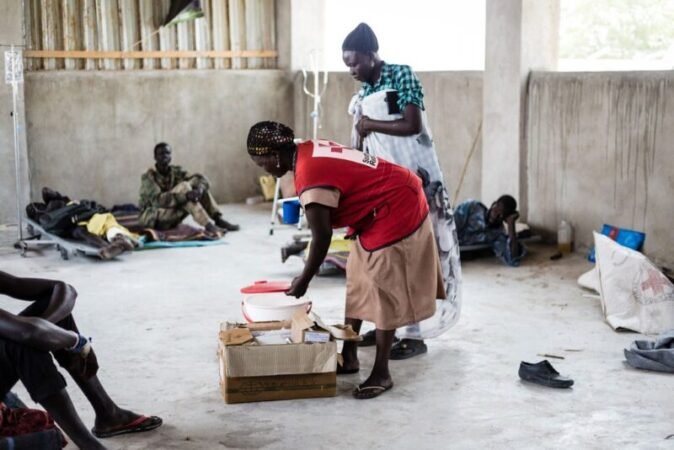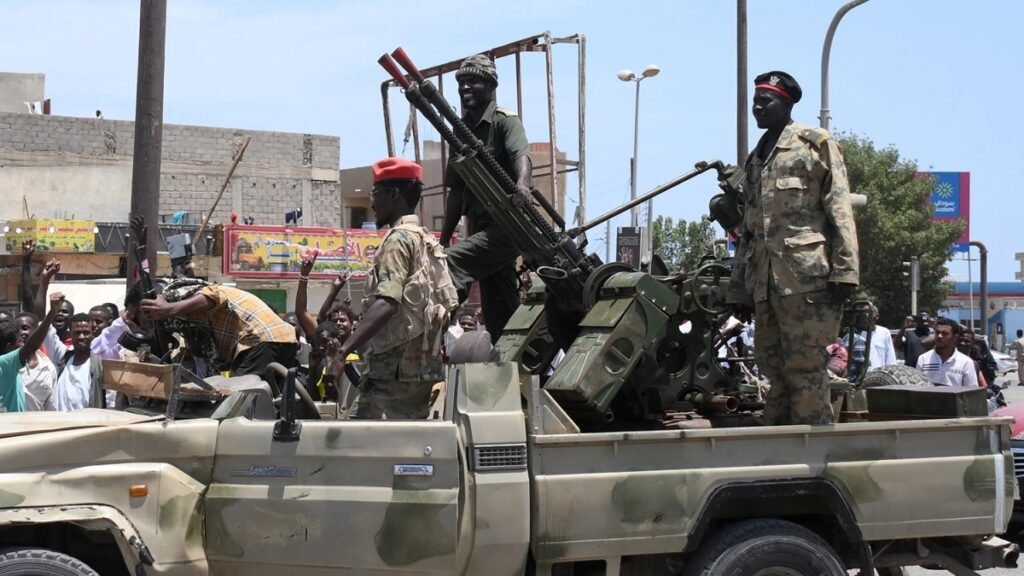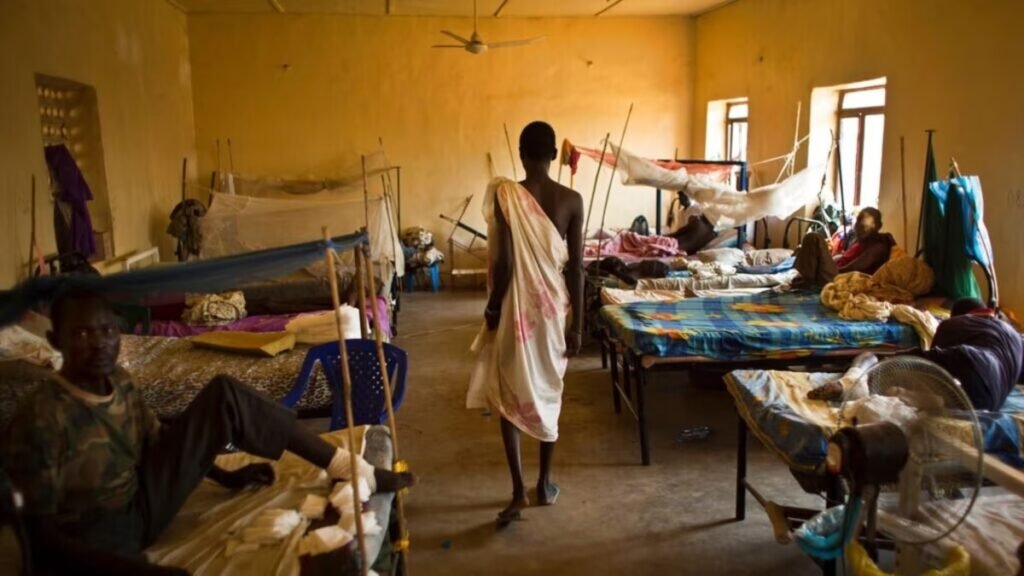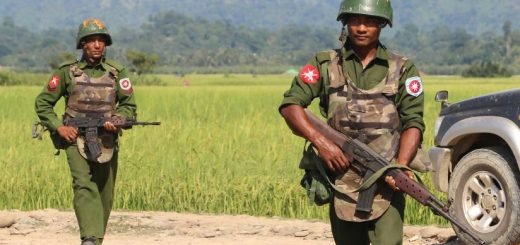Sudan’s Health Crisis 2023: Need of Harnessing Regional Organizations Humanitarian Response

The ongoing civil war in the North African country of Sudan has reached to its pinnacle. The conflict in Sudan has resulted in a number of humanitarian crises, including people displacement, food insecurity, and limited access to healthcare facilities. On part of the international/regional organizations, it is anticipated that the same would engage wholeheartedly to resolve these crises in Sudan. Notwithstanding Sudan’s health crisis, the regional organisations have not furnished sufficient assistance and resources to tackle the issue. Consequently, a significant portion of the Sudanese population is still afflicted by avoidable health risks and faces inadequate availability of fundamental healthcare amenities.
Sudan Conflict
Since its independence in 1956, Sudan has been plagued by civil wars and political instability. The Darfur conflict should be viewed as part of a larger, ongoing series of Sudanese crises, with one conflict feeding into the next. The first and most well-known of these conflicts was the North-South conflict, which was resolved in 2005 with the signing of a peace treaty (after two rounds of fighting, from 1955 to 1972 and from 1983 to 2005). Regional conflicts also erupted in the country’s east, in the Nuba Mountains, the Upper Blue Nile, and the Beja region.
Sudan’s colonial and post-colonial regional, political, and economic inequalities, degradation of the environment and resource competition are major causes that could be held responsible factors for these conflicts. The inequalities are exemplified by a small group of Arabic-speaking Sudanese elites’ political, economic, and cultural hegemony over non-Arab and non-Muslim groups in the country. Pastoralists and farmers have been fighting over scarce resources since its independence. Politics further fuels the fire of conflict. Arabic-speaking elites keep on playing an important role in the establishment of post-independent Sudanese governments. These elites sought an Arab-Islamic national identity. Non-Arab and non-Muslim groups in the marginalised South, Nuba Mountains, and the Red Sea resisted these policies. The Sudan People’s Liberation Movement (SPLM)’s “New Sudan” call has shaped Sudanese politics. This slogan promotes a secular, plural, unified Sudan without religious, ethnic, linguistic, gender, or regional distinctions. However, these dynamics made Arabic-speaking northern Sudanese elites more apprehensive (Sikainga (2009); Johnson, 2016).

The ongoing Sudan conflict is fought between two rival groups: the Sudanese Armed Forces (SAF), which is supported by Egypt, and the rival group Rapid Support Forces (RSF), which is supported by the Libyan National Army and the Wagner Group. The Sudanese paramilitary forces formerly operated by the Sudanese government are known as the RSF. The RSF arose from the Janjaweed militia and is mostly made up of its former members. Human Rights Watch believes that certain RSF activities in Darfur constitute crimes against humanity. The SAF and RSF have been fighting in Khartoum and other strategic areas since 15 April. The de facto leader of Sudan, General Abdel Fattah al-Burhan of the SAF, fighting with his deputy, General Mohamed Hamdan Dagalo of the RSF, known as “Hemetti.
Fighting between the SAF and the RSF that is broke out on April 15, 2023, and despite ceasefires and pauses, the fighting is still going on till date. The fighting groups are using heavy gunfire, air strikes, and shelling across the country, particularly in the states of North, Central, and South Darfur, North Kordofan, and the capital, Khartoum. Unconfirmed reports of increased fighting surfaced on April 20 in El Obeid, North Kordofan State, and in Gedaref, eastern Sudan. As a consequence of this ongoing conflict, as of 21 April, at least 413 people have been killed and over 3,500 injured. There is widespread media coverage which reported that it is extremely troubling to hear that military forces occupying medical facilities, looting medical facilities, looting ambulances while patients and paramedics are on board, and engaging in military strikes against these medical facilities in various Sudanese cities.
Health Crisis
On account of ongoing civil conflict, Sudanese health has become paralysed. It is reported that the 16 hospitals in Khartoum, Darfur and other states, are on the verge of becoming non-functional due to a lack of staff and medical supplies. There are reports of shortages of blood, transfusion equipment, intravenous fluids, medical supplies, and other life-saving commodities coming from hospitals in Khartoum that are treating injured people. It is also being reported that the patients are suffering from a lack of access to water, electricity, fuel, and food (WHO, 21 April 2023). Intensive care and other life-saving medical services are in danger because one-third of Sudan’s healthcare facilities are broken. According to a report by the Sudanese Doctors Syndicate, a number of hospitals and other health institutions have been damaged as a result of the conflict. Humanitarian efforts in strategic regions of the country have been hampered by the persistent plundering of the property and offices of international and humanitarian organisations, most notably in Darfur and Khartoum.
A growing number of people are running out of food, water, and electricity, including in Khartoum, and there are reports of people fleeing fighting-torn areas, including Khartoum, in search of safety and sustenance. According to the UNHCR, 10,000 to 20,000 Sudanese refugees have fled to Chad in the last two days. According to the IOM’s Displacement Tracking Matrix, widespread displacement has been reported in several locations across Al Fashir (capital city of North Darfur) as a result of the fighting in North Darfur. Because of the deteriorating security situation, a large number of people living in the Abu Shouk camp for internally displaced people have relocated to the As-Salam camp in Al Fasher town. Looting incidents have also been reported in Al Fashir market.
According to Save the Children, the conflict has affected at least 32 vaccination sites, with power outages across Sudan destroying cold chain storage facilities for life-saving vaccines, as well as the national stock of insulin and several antibiotics, putting millions of children at risk of disease and further health complications (OCHA, 21 April 2023).

Need for Harnessing Regional Organizations’ Cooperation
The African Union after an emergency meeting by its Peace and Security Council issued a statement saying that it “strongly rejects any external interference that could complicate the situation in Sudan.” It is also reported that Moussa Faki, Chair of the African Union Commission, would be heading to Sudan immediately to try to broker a ceasefire. The Arab League, in its statement issued after an emergency meeting in Cairo, has demanded an immediate end to the violence in Sudan and offered to mediate between the country’s warring sides. These two organizations are only talking of political solution and end of the violence. The humanitarian response of these regional organizations have not been very positive.
In 2023, the European Union (EU) has provided 73 million euros in humanitarian aid to Sudan. The people who are in need, such as those who have been internally displaced, refugee families, and host communities, would benefit from this humanitarian aid provided by the EU in the form of medical aid, food, water, sanitation, shelter, protection, education etc. In addition, the EU helps provide for the prenatal and postnatal nutritional needs of women and children in Sudan.
The Spokesperson of the UN Secretary-General in his press briefings on 17 April highlighted that the humanitarian situation in Sudan is in a dire situation. The fighting has caused the temporary suspension of 250 programmes being run in Sudan by the 10 UN agencies and 80 NGOs. The airport and borders are still closed, these organizations can’t leave or enter the country at the moment. A plane from the United Nations Humanitarian Air Service, which is obviously vital to operations in a country like Sudan, was reportedly damaged in the crossfire at Khartoum airport. This may severely hinder our ability to reach out to underserved areas of the country.
Martin Griffiths, the Under-Secretary-General for Humanitarian Affairs, expressed his profound concerns over the loss of life of humanitarian personnel, which includes three members of the World Food Programme (WFP). He also argued that the ongoing conflicts has impeded the UN and its allied agencies’ endeavours to provide humanitarian aid, particularly when the demand for assistance is at its peak in Sudan. According to humanitarian experts, approximately 16 million individuals, which accounts for nearly one-third of the populace, required humanitarian assistance at the onset of the current year. Furthermore, around 3.7 million individuals were internally displaced within Sudan.
It is argued that the aforementioned facts underscore the pressing need for harnessing the regional organization’s cooperation and coordination to address the health crisis in Sudan. The exacerbation of the situation due to political instability and conflict in Sudan has resulted in a significant number of individuals requiring urgent access to fundamental healthcare and other essential services. Through the utilisation of the resources and specialised knowledge of regional organizations as the UN, WHO, EU, the African Union and the Arab League, it is plausible to furnish essential aid to the needy population of Sudan and forestall any additional exacerbation of the health crisis of Sudan. Collaboration and coordination among the regional organizations, the Sudanese government and local communities are imperative to facilitate the effective distribution of aid to the most vulnerable populations and to foster enduring remedies to the health emergency. The paradoxes of international/regional organizations are that these organizations are making efforts to give a political solution, whereas at the moment, the Sudanese population is required health and humanitarian aid.


















